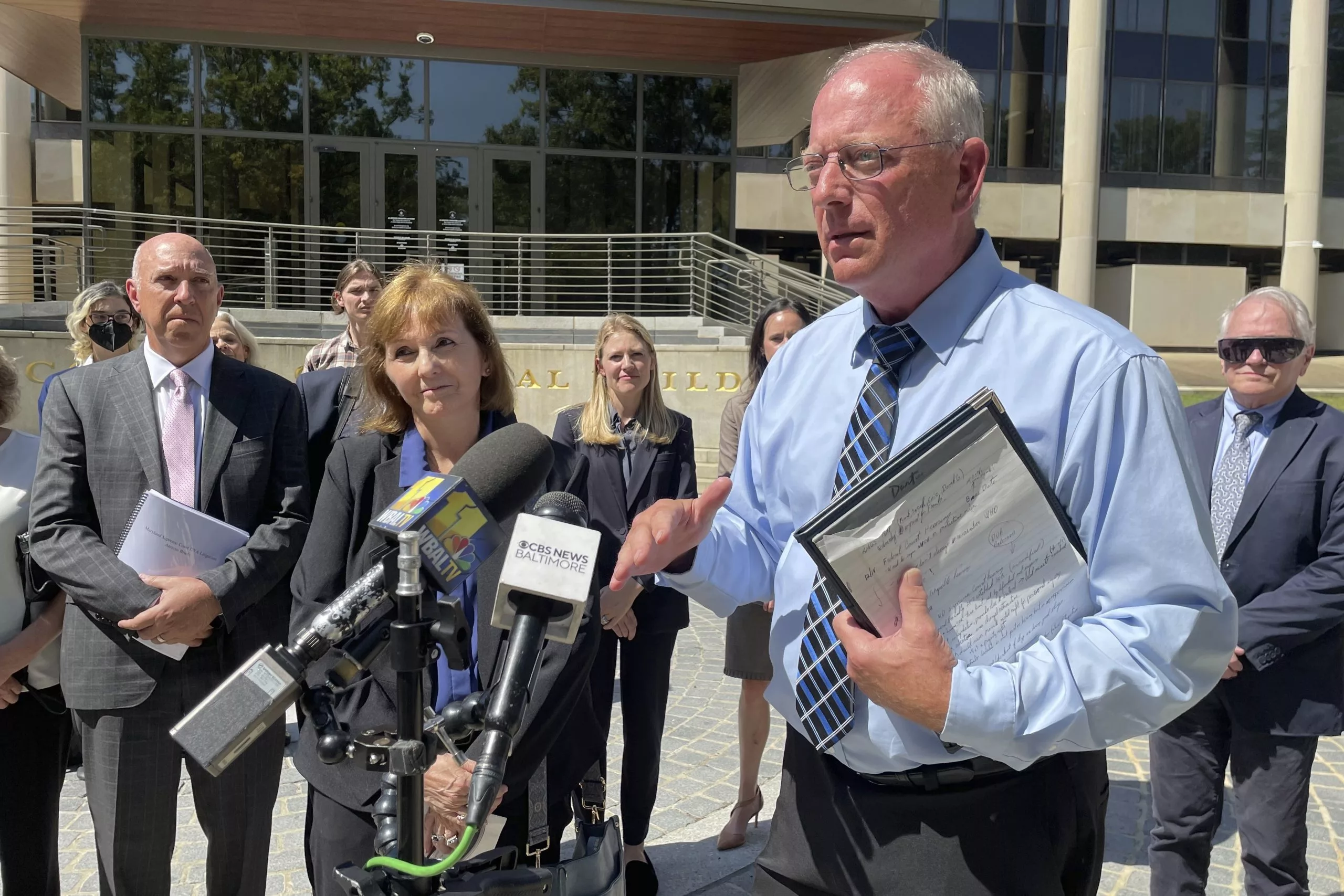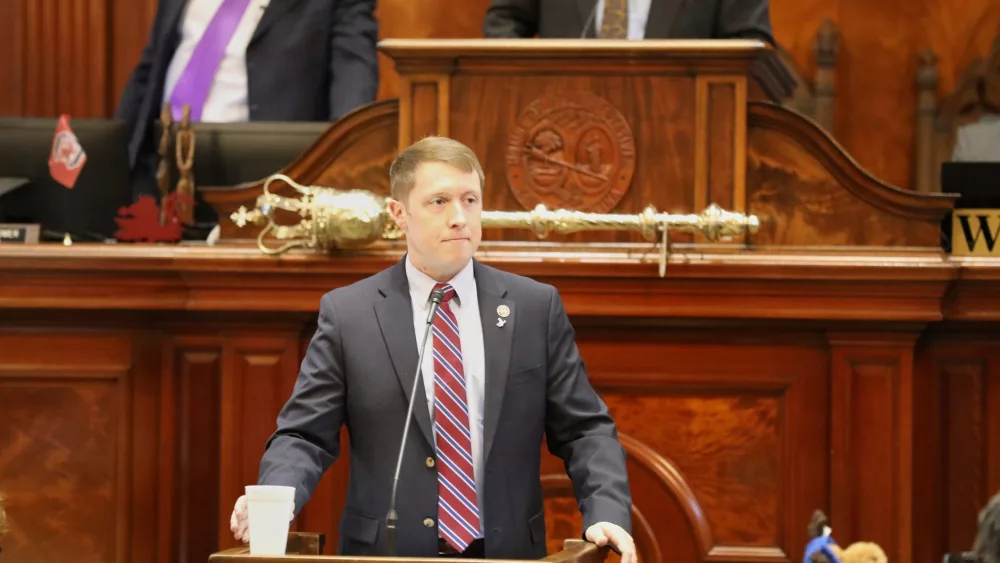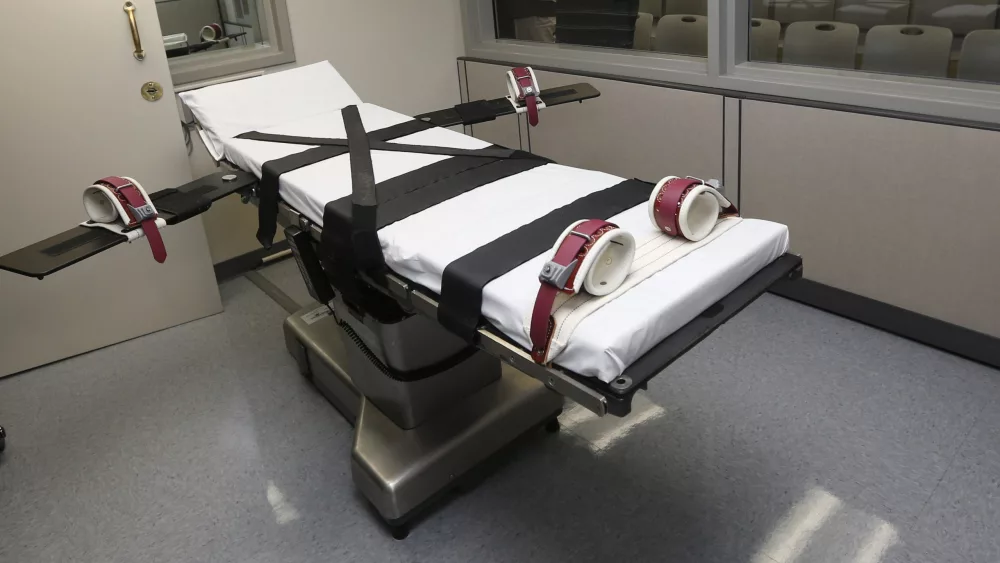ANNAPOLIS, Md. (AP) — Maryland’s Supreme Court on Monday upheld the constitutionality of a state law that ended the statute of limitations for child sexual abuse lawsuits following a report that exposed widespread wrongdoing within the Archdiocese of Baltimore.
The court upheld the 2023 law in a 4-3 ruling, saying the Maryland General Assembly had the authority to change the law as it did, after hearing arguments in September.
Opposition over the law’s constitutionality focused on an earlier 2017 law that established a cutoff age of 38 for victims to sue. The justices considered whether it was written in a way that permanently protected certain defendants from liability. The court concluded that the Maryland Legislature has the power to change such a statute, which it did in passing the 2023 law.
In the court’s majority ruling, written by Maryland Chief Justice Matthew Fader, justices decided that the relevant portion of the 2017 law created a statute of limitations “and that the running of a statute of limitations does not establish a vested right to be free from liability from the underlying cause of action.”
“We further hold that it was within the power of the General Assembly to retroactively abrogate that statute of limitations,” the court ruled. “The Child Victims Act of 2023 is therefore constitutional as applied to the defendants in the three cases before us.”
David Lorenz, the Maryland director of Survivors Network of those Abused by Priests, praised the ruling, calling it “a victory for survivors.”
“They will finally get their chance at justice and being able to expose the predators that harmed them, and the diocese has not done that, and this law will allow that to happen,” Lorenz said.
Attorneys for defendants facing liability claims under the 2023 law contended that the 2017 law was written in a way that permanently protected certain defendants from liability. They argued that the law included a statute of repose, which could not be modified because it included a “vested right to be free from liability.”
A dissenting opinion by the court said the 2017 law created a statute of repose with respect to claims against non-perpetrator defendants.
“Thus, any claims against non-perpetrator defendants that were untimely on the effective date of the 2017 Act, or that became untimely before the effective date of the 2023 Act, could not be revived without violating the vested rights of the affected defendants,” Justice Jonathan Biran wrote.
Gov. Wes Moore, a Democrat, signed the Child Victims Act into law in 2023 — less than a week after the state’s attorney general released a report that documented rampant abuse committed by Baltimore clergy spanning 80 years and accused church leaders of decades of coverups.
The report, which is nearly 500 pages, included details about more than 150 Catholic priests and others associated with the Archdiocese of Baltimore abusing over 600 children. State investigators began their work in 2019. They reviewed over 100,000 pages of documents dating back to the 1940s and interviewed hundreds of victims and witnesses.
Days before the new law was to take effect Oct. 1, 2023, the archdiocese filed for bankruptcy to protect its assets ahead of an anticipated deluge of litigation.
Several other states have approved similar laws in recent years, and in some cases, the resulting lawsuits have driven dioceses into bankruptcy.
Brought to you by www.srnnews.com






